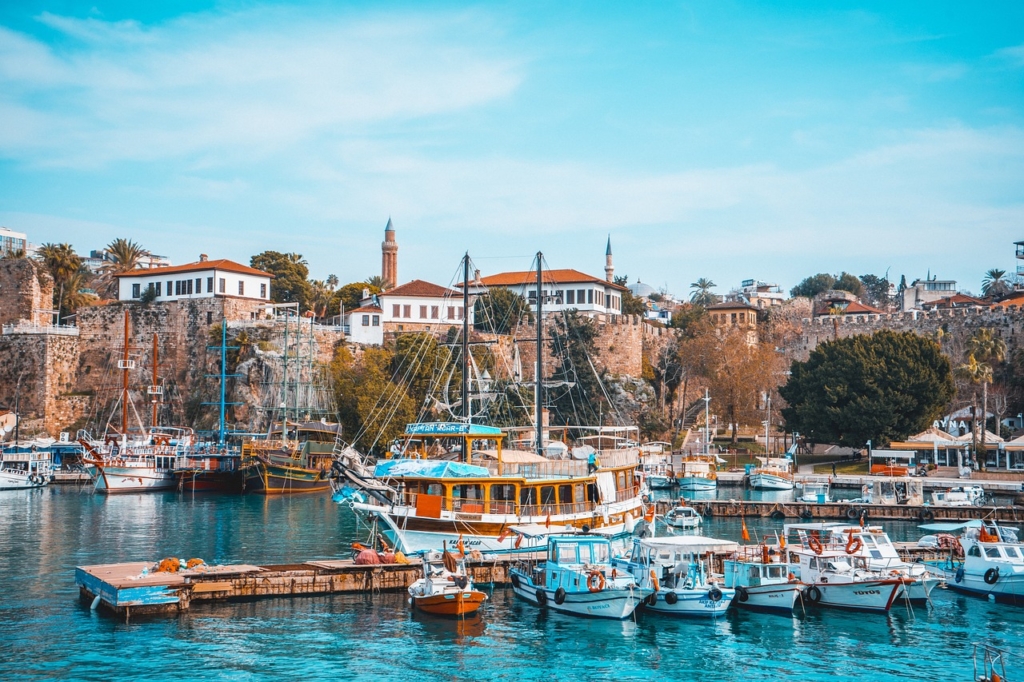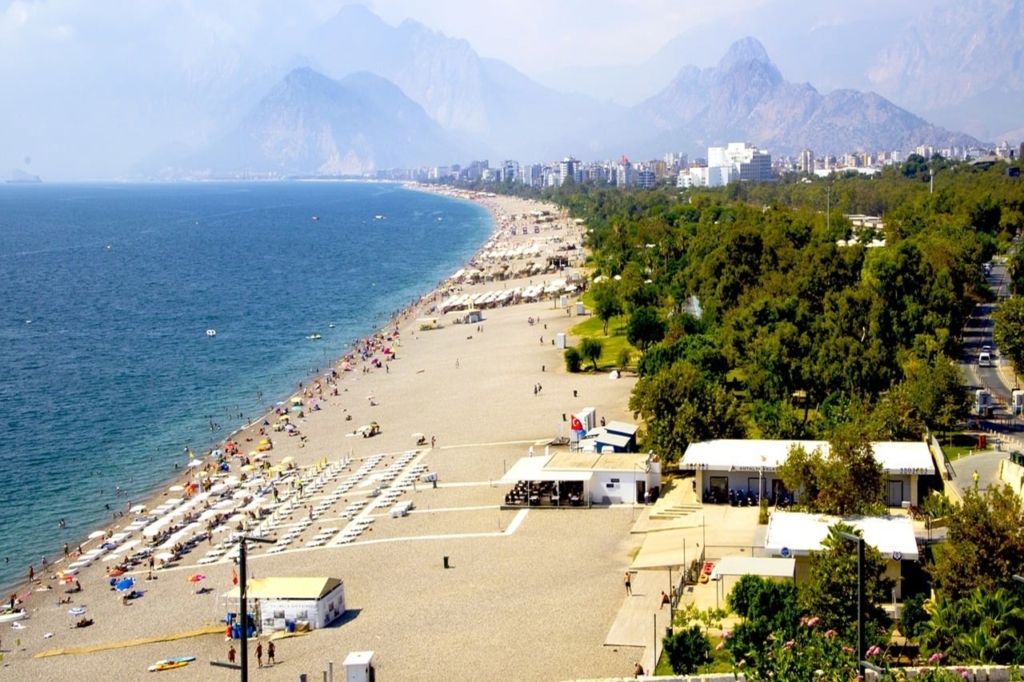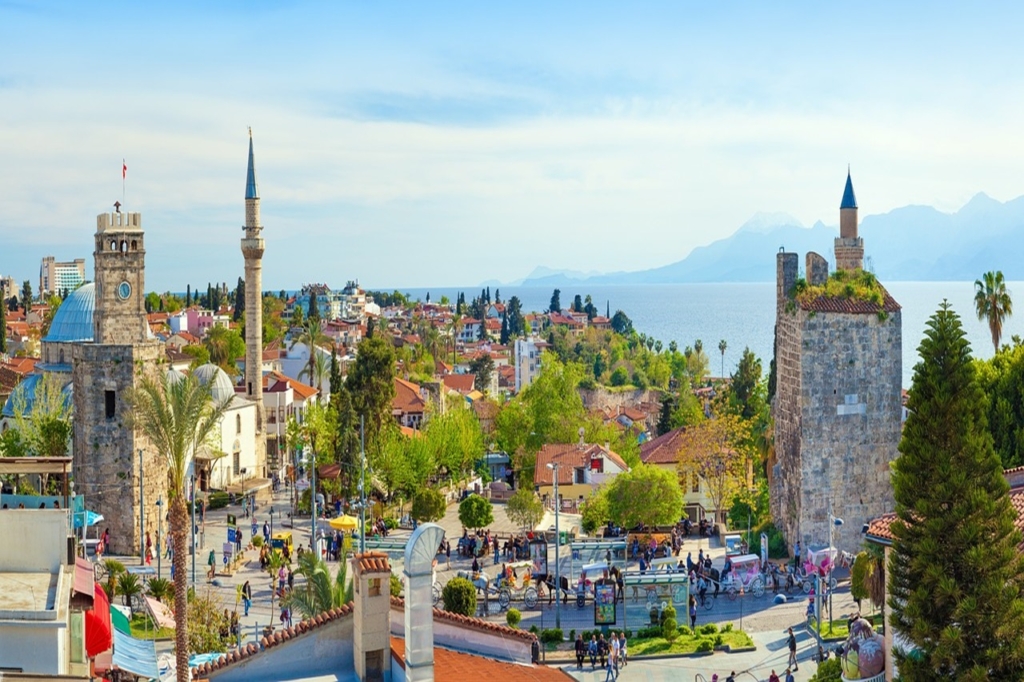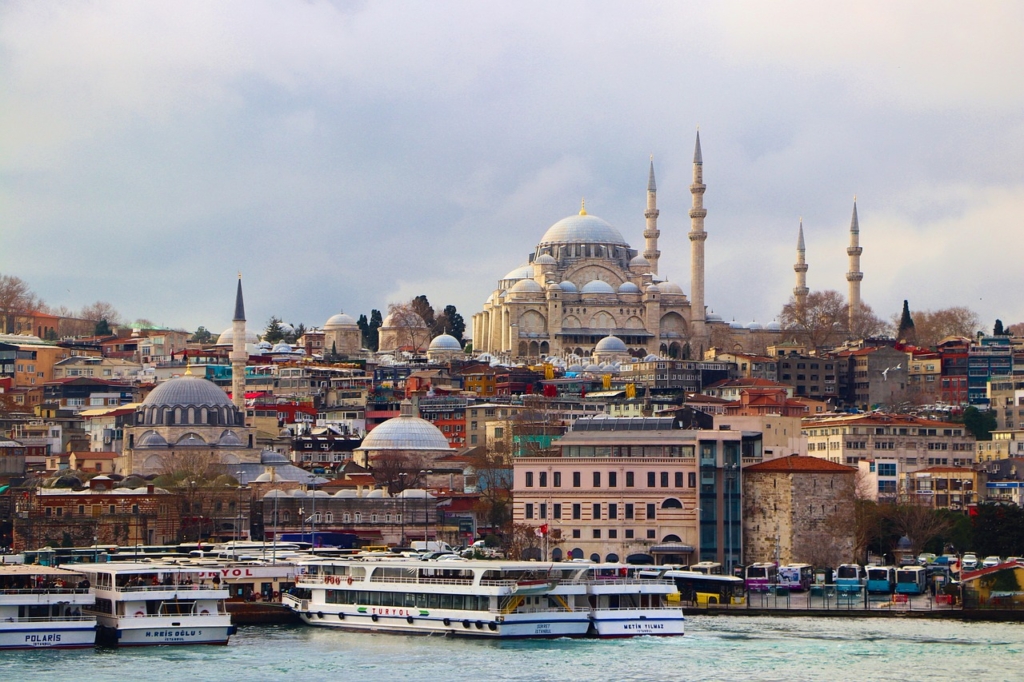Turkey Country Guide




Why Should I/We Buy in Turkey
Buying property in Turkey presents numerous benefits, making it an attractive destination for investors, retirees, and those seeking a holiday home. Here are some key points on why you should consider purchasing property in Turkey:
Affordable Property Prices: Compared to many other countries in Europe and the Middle East, Turkey offers relatively affordable real estate prices. This makes it possible to find high-quality properties at competitive rates, providing excellent value for money.
Diverse Property Options: Turkey’s real estate market is diverse, offering everything from modern apartments in bustling cities to luxurious villas along the coastline. Whether you’re looking for an urban lifestyle, a beachfront retreat, or a rural escape, there’s a property to suit your needs.
Growing Economy: Turkey’s economy has been growing steadily, attracting foreign investment and boosting the real estate market. Investing in property in Turkey can offer substantial returns, especially in rapidly developing areas.
Citizenship by Investment: Turkey offers a citizenship by investment program, allowing foreigners to obtain Turkish citizenship by purchasing property worth at least $400,000. This provides additional benefits, such as visa-free travel to many countries and access to Turkey’s robust healthcare and education systems.
Strategic Location: Situated at the crossroads of Europe and Asia, Turkey offers a strategic location that makes it a gateway for business and travel. Its unique position provides easy access to various international markets and cultural experiences.
Rich Culture and History: Turkey boasts a rich cultural heritage and historical significance, with ancient ruins, historic cities, and vibrant traditions. Living in Turkey allows you to immerse yourself in a unique blend of Eastern and Western cultures.
Mild Climate: Turkey enjoys a diverse climate, with coastal regions experiencing a Mediterranean climate with hot summers and mild winters. This makes it an attractive destination for those seeking a pleasant year-round climate.
Beautiful Landscapes: Turkey is renowned for its stunning landscapes, including beautiful beaches, majestic mountains, and picturesque countryside. Owning property in Turkey provides easy access to these natural wonders.
Tourism Potential: As a popular tourist destination, Turkey has a thriving tourism industry, which can be advantageous for property owners looking to generate rental income. Properties in tourist hotspots like Istanbul, Antalya, and Bodrum are particularly sought after.
Modern Infrastructure: Turkey has invested significantly in its infrastructure, with modern airports, highways, public transportation, and healthcare facilities. This ensures a high quality of life for residents and enhances the attractiveness of property investments.
Expatriate-Friendly: Turkey has a growing expatriate community, especially in cities like Istanbul, Antalya, and Izmir. This makes it easier for newcomers to integrate and find support networks, contributing to a welcoming environment for foreign property buyers.
Potential for Capital Appreciation: The Turkish property market has shown potential for capital appreciation, especially in areas undergoing rapid development and urbanization. Investing in property now could yield substantial returns in the future.
These key points highlight the diverse advantages of buying property in Turkey, from economic and investment opportunities to the cultural and lifestyle benefits. Whether for investment, retirement, or personal use, Turkey offers a compelling case for property buyers.
Buying Process in Turkey
Buying property in Turkey involves several steps and understanding the associated taxes and fees is essential to plan your budget effectively. Here are key points on the buying process in Turkey, along with information on taxes and fees:
Property Search: Begin by identifying properties that meet your criteria, whether it’s a villa, apartment, or commercial property. Consider factors like location, amenities, and budget.
Legal Assistance: Engage a reputable lawyer with expertise in Turkish real estate law to oversee the transaction, conduct due diligence, and ensure all legal requirements are met.
Offer and Negotiation: Once you’ve found a suitable property, negotiate the price and terms of sale with the seller or their agent. It’s common to make a verbal offer before proceeding to a written agreement.
Preliminary Sales Contract (İsmet İrtem Tahlil ve Kararlaştırma Sözleşmesi): This is a preliminary contract signed by both parties (buyer and seller) and notarized by a notary public. It outlines the terms of the sale, including the purchase price, payment schedule, and conditions precedent.
Title Deed Transfer (Tapu Teslimi): The final step involves transferring the title deed (Tapu) into your name at the Land Registry Office (Tapu Sicil Müdürlüğü). You’ll need to pay the full purchase price and associated fees at this stage.
Military Clearance: Foreign buyers may require military clearance (Askeri Şeref Beyanı) to ensure the property is not located in a restricted military zone. This process is typically handled by your lawyer.
Taxes & Fees
Title Deed Fee (Tapu Harcı): This fee is paid to the Land Registry Office and is approximately 4% of the declared value of the property.
Value Added Tax (VAT): VAT applies to the sale of new properties by developers and is currently 1% of the sales price. It may vary based on government policies.
Stamp Duty (Damga Vergisi): Stamp duty is payable on contracts and documents related to property transactions, typically around 0.948% of the property’s declared value.
Legal Fees: Legal fees for a property purchase in Turkey usually range from 1% to 3% of the property’s purchase price. This covers the cost of legal services, due diligence, and contract preparation.
Translator Fees: If documents need to be translated into English or another language, you may incur additional costs for translation services.
Real Estate Agent’s Commission: If you use a real estate agent, their commission typically ranges from 2% to 4% of the property’s purchase price.
Annual Property Tax (Emlak Vergisi): This tax is levied annually and is based on the assessed value of the property. Rates vary depending on the location and size of the property.
Utilities and Maintenance Fees: Be prepared for ongoing costs such as utilities (electricity, water, etc.) and maintenance fees if you purchase an apartment in a complex with shared facilities.
Understanding the buying process and associated costs in Turkey is crucial for a smooth property transaction. Working with experienced professionals, such as lawyers and real estate agents, can help navigate the complexities and ensure compliance with Turkish laws and regulations.
Popular Areas in Costa Rica
Turkey offers a diverse range of regions, each with its unique charm and appeal, making it an attractive destination for property buyers seeking a blend of history, culture, and natural beauty. Here’s an overview of some popular areas in Turkey for buying property, along with brief information on each:
1. Istanbul
- Characteristics: As Turkey’s largest city and cultural hub, Istanbul bridges Europe and Asia with its rich history, stunning architecture, and vibrant atmosphere.
- Property Market: Istanbul offers a mix of modern apartments, historic homes, and luxury waterfront properties. Popular areas include Besiktas, Sisli, and Uskudar, each offering unique cultural experiences and proximity to amenities.
2. Antalya
- Characteristics: Located on the Mediterranean coast, Antalya is famous for its turquoise waters, sandy beaches, and ancient ruins like Perge and Termessos.
- Property Market: Antalya offers a range of beachfront villas, golf resorts, and modern apartments. Areas such as Lara Beach, Konyaalti, and Belek are popular among buyers seeking a Mediterranean lifestyle and tourism opportunities.
3. Bodrum
- Characteristics: Bodrum is a popular resort town known for its Bodrum Castle, vibrant nightlife, and upscale marina.
- Property Market: Bodrum offers luxury villas, seaside apartments, and exclusive estates. Areas like Yalikavak, Turkbuku, and Bodrum Center attract high-profile buyers looking for a cosmopolitan lifestyle and scenic views.
4. Fethiye
- Characteristics: Fethiye is a picturesque coastal town nestled between the Mediterranean and Aegean Seas, known for its turquoise bays, Lycian ruins, and the stunning Blue Lagoon.
- Property Market: Fethiye offers a mix of affordable apartments, charming villas, and countryside retreats. Areas such as Oludeniz, Calis Beach, and Gocek are popular for their natural beauty and tranquil atmosphere.
5. Kalkan
- Characteristics: Kalkan is a small fishing village turned upscale resort known for its narrow streets, Ottoman-era architecture, and panoramic sea views.
- Property Market: Kalkan offers luxury villas, boutique hotels, and seafront apartments. The area’s exclusivity and relaxed atmosphere appeal to buyers seeking a quieter, high-end Mediterranean retreat.
6. Alanya
- Characteristics: Alanya is a resort town on the southern coast, known for its sandy beaches, ancient fortress, and vibrant expat community.
- Property Market: Alanya offers beachfront apartments, luxury penthouses, and family-friendly villas. Areas like Cleopatra Beach, Mahmutlar, and Kestel appeal to buyers looking for a relaxed Mediterranean lifestyle with amenities nearby.
7. Akbuk
- Characteristics: Akbuk is a tranquil coastal town known for its crystal-clear waters, sandy beaches, and pine-clad hillsides.
- Property Market: Akbuk offers a mix of seaside apartments, villas with panoramic views, and holiday homes. It’s prized for its peaceful environment and proximity to nature, making it ideal for buyers seeking relaxation and natural beauty.
8. Belek
- Characteristics: Belek is renowned for its world-class golf courses, luxury resorts, and sandy beaches along the Mediterranean coast.
- Property Market: Belek offers golf villas, modern apartments, and resort-style properties. It’s a popular destination for golf enthusiasts and holiday home seekers, with amenities like spas, restaurants, and entertainment facilities.
Each of these areas in Turkey offers a distinct lifestyle and investment potential, whether you’re seeking a bustling city center, a tranquil seaside retreat, or a historical enclave. Consider your preferences, budget, and long-term goals when choosing the perfect property in Turkey’s diverse real estate market.
